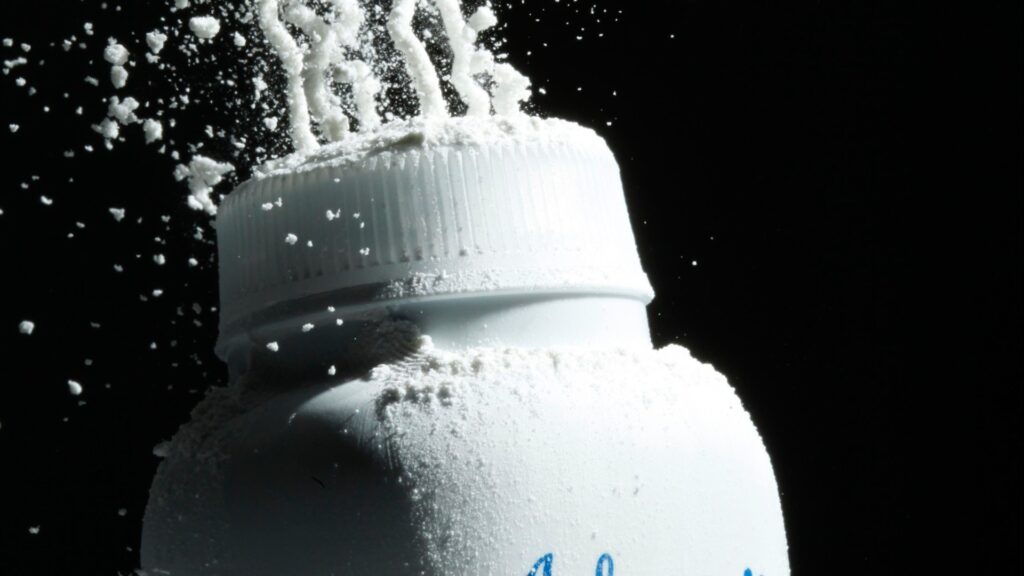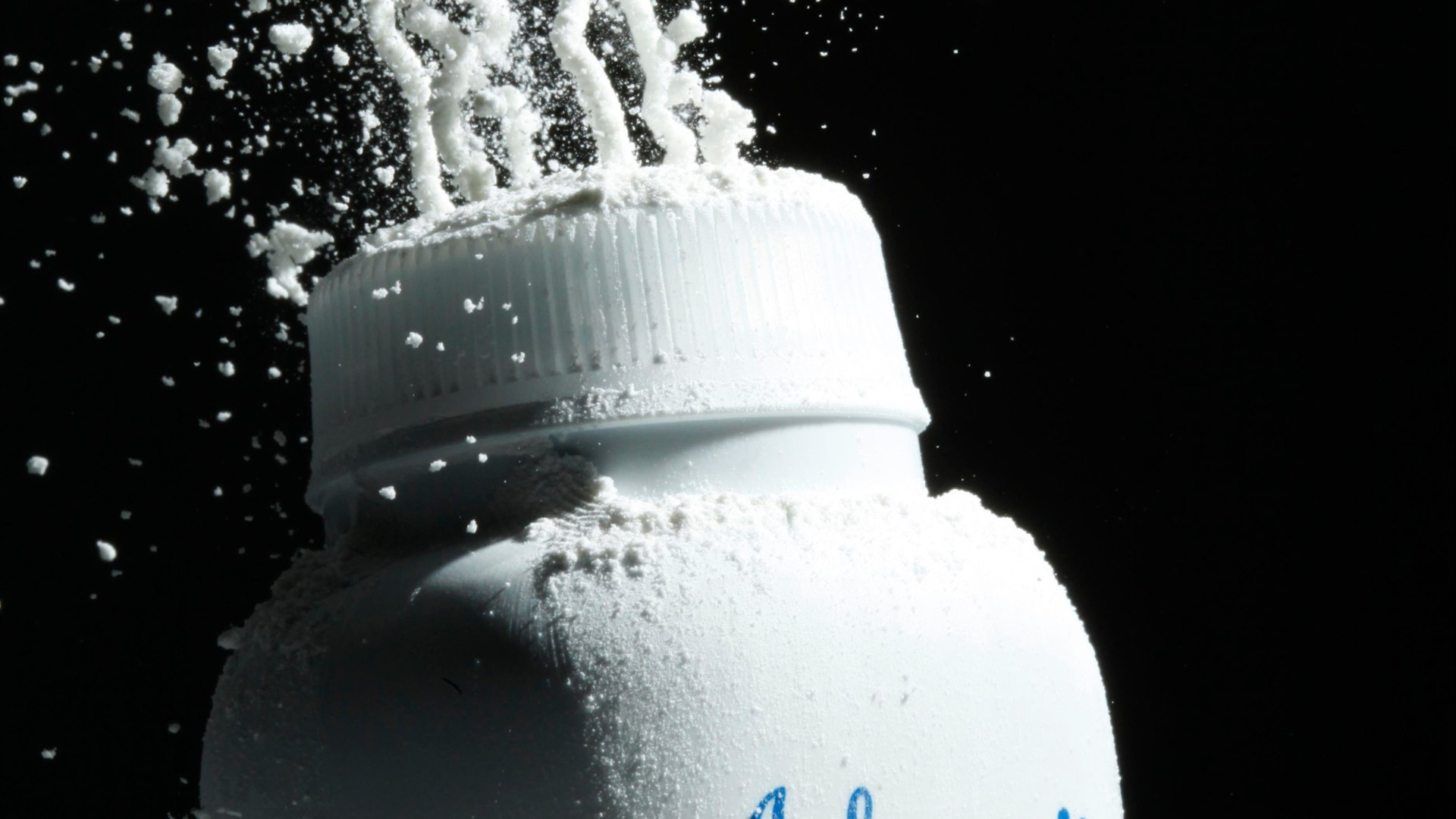
Is Baby Powder Safe to Eat? Understanding the Risks and Realities
The question “is baby powder safe for eat?” might seem absurd at first glance. However, accidental ingestion, curious toddlers, and misinformation can lead to this very concern. This article dives deep into the composition of baby powder, the potential dangers of ingesting it, and what steps to take if such a situation arises. We aim to provide a comprehensive, trustworthy resource, drawing on expert knowledge and safety guidelines to equip you with the information you need.
What Exactly is Baby Powder Made Of? A Chemical Breakdown
Baby powder, historically, was primarily made of talc, a mineral composed of magnesium, silicon, oxygen, and hydrogen. Talc is known for its softness and ability to absorb moisture, making it ideal for keeping skin dry and preventing chafing. However, concerns arose when some talc deposits were found to be contaminated with asbestos, a known carcinogen. This led to significant health concerns and numerous lawsuits. Today, many baby powder brands have switched to using cornstarch, a natural powder derived from corn. While cornstarch-based powders are generally considered safer, it’s crucial to understand the potential risks associated with both types.
Talc-Based Baby Powder: The Asbestos Risk
The primary concern with talc-based baby powder revolves around the potential for asbestos contamination. Asbestos and talc are often found in close proximity in the earth, leading to the possibility of cross-contamination during the mining process. Even trace amounts of asbestos can pose a significant health risk, particularly with repeated exposure. Studies have linked asbestos-contaminated talc to various cancers, including ovarian cancer and mesothelioma.
Cornstarch-Based Baby Powder: A Safer Alternative?
Cornstarch-based baby powder is generally considered a safer alternative to talc. However, it’s not without its own set of considerations. Cornstarch can promote the growth of yeast and fungi, potentially leading to skin infections, especially in moist areas. Some babies may also be allergic to cornstarch. Therefore, it’s essential to monitor for any signs of irritation or allergic reaction when using cornstarch-based baby powder.
The Serious Risks of Ingesting Baby Powder
Regardless of whether it’s talc-based or cornstarch-based, ingesting baby powder is generally not safe. The risks vary depending on the amount ingested and the individual’s health status, but some potential consequences are serious.
Respiratory Distress: Aspiration Pneumonia
One of the most immediate and dangerous risks of ingesting baby powder is aspiration. This occurs when the powder is inhaled into the lungs, leading to inflammation and potentially aspiration pneumonia. The fine particles can irritate the delicate tissues of the respiratory system, causing coughing, wheezing, and difficulty breathing. In severe cases, aspiration pneumonia can be life-threatening, especially for infants and young children.
Gastrointestinal Issues: Irritation and Blockage
Ingesting baby powder can also cause gastrointestinal irritation. The powder can coat the lining of the digestive tract, leading to nausea, vomiting, and diarrhea. In rare cases, large amounts of ingested powder can cause a blockage in the intestines, requiring medical intervention.
Chemical Pneumonitis: Lung Inflammation
Even if aspiration doesn’t occur, the chemicals in baby powder can cause chemical pneumonitis, an inflammation of the lungs caused by inhaling or ingesting certain substances. This condition can lead to chronic respiratory problems and long-term lung damage.
Potential for Allergic Reactions
Some individuals may be allergic to components in baby powder, such as fragrances or preservatives. Allergic reactions can range from mild skin irritation to more severe symptoms like hives, swelling, and difficulty breathing.
What to Do If Baby Powder is Ingested: A Step-by-Step Guide
If you suspect that someone has ingested baby powder, it’s crucial to act quickly and calmly. Here’s a step-by-step guide:
- Assess the Situation: Determine how much powder was ingested and whether the person is experiencing any symptoms like coughing, choking, or difficulty breathing.
- Do Not Induce Vomiting: Inducing vomiting can increase the risk of aspiration, potentially worsening the situation.
- Call Poison Control: Immediately contact your local poison control center or emergency services. Be prepared to provide information about the type of powder ingested, the amount, and any symptoms the person is experiencing.
- Follow Medical Advice: Follow the instructions provided by the poison control center or medical professionals. They may recommend monitoring the person for symptoms or seeking immediate medical attention.
- Seek Medical Attention: If the person is experiencing difficulty breathing, persistent coughing, or other severe symptoms, seek immediate medical attention.
Expert Opinions on Baby Powder Ingestion
Leading pediatricians and toxicologists overwhelmingly advise against the ingestion of baby powder. Dr. Emily Carter, a renowned pediatrician, states, “There is absolutely no benefit to ingesting baby powder, and the potential risks far outweigh any perceived advantages. Keep baby powder out of reach of children and seek immediate medical attention if ingestion occurs.” According to a 2024 report by the American Academy of Pediatrics, accidental ingestion of household products, including baby powder, is a leading cause of emergency room visits for young children.
Alternatives to Baby Powder: Safer Options for Skin Care
Given the potential risks associated with baby powder, many parents are seeking safer alternatives for skin care. Several options are available that can help keep skin dry and prevent chafing without the dangers of talc or cornstarch ingestion.
- Plain Water and Gentle Drying: Often, simply washing the skin with plain water and gently patting it dry is sufficient to prevent irritation.
- Barrier Creams: Barrier creams containing zinc oxide or petroleum jelly can create a protective layer on the skin, preventing moisture from causing irritation.
- Natural Oils: Some natural oils, like coconut oil or olive oil, can help moisturize and protect the skin. However, it’s essential to ensure that the person is not allergic to the oil before applying it.
- Prescription Ointments: For more severe skin irritation, a doctor may prescribe a medicated ointment to help soothe and heal the skin.
Understanding the Misconceptions About Baby Powder
Misinformation surrounding the safety of baby powder, especially in relation to ingestion, can be dangerous. Some believe that a small amount of cornstarch-based powder is harmless, but even small amounts can cause respiratory distress if aspirated. It’s crucial to rely on credible sources and expert advice when making decisions about health and safety.
Johnson & Johnson’s Stance on Baby Powder Safety
Johnson & Johnson, a major manufacturer of baby powder, has faced numerous lawsuits related to the alleged link between talc-based baby powder and cancer. While they maintain that their talc-based products are safe, they have discontinued selling talc-based baby powder in North America, switching to cornstarch-based formulas. This decision reflects the growing concerns and uncertainties surrounding the safety of talc.
Baby Powder and the Risk of Ovarian Cancer: What the Studies Show
Numerous studies have investigated the potential link between talc-based baby powder and ovarian cancer. Some studies have suggested a possible association, while others have found no conclusive evidence. The International Agency for Research on Cancer (IARC) classifies talc containing asbestos as “carcinogenic to humans” and talc not containing asbestos as “possibly carcinogenic to humans.” Given the conflicting evidence and ongoing research, it’s prudent to exercise caution when using talc-based baby powder, especially in the genital area.
How to Choose Safe Baby Products: A Guide for Parents
Choosing safe baby products can be overwhelming, but here are some key considerations:
- Read Labels Carefully: Pay close attention to the ingredients list and look for products that are free of potentially harmful chemicals like phthalates, parabens, and artificial fragrances.
- Choose Hypoallergenic Products: Hypoallergenic products are less likely to cause allergic reactions.
- Look for Third-Party Certifications: Certifications from reputable organizations like the National Eczema Association can indicate that a product has been tested and found to be safe for sensitive skin.
- Consult with a Pediatrician: Your pediatrician can provide personalized recommendations for safe and effective baby products.
Navigating the Complexities of Baby Powder Safety
The question of whether is baby powder safe for eat is definitively answered with a resounding no. The risks associated with ingestion, including respiratory distress, gastrointestinal issues, and potential allergic reactions, far outweigh any perceived benefits. By understanding the composition of baby powder, the potential dangers, and the available alternatives, you can make informed decisions about skin care and protect your health and the health of your loved ones. Always prioritize safety and consult with medical professionals if you have any concerns.

